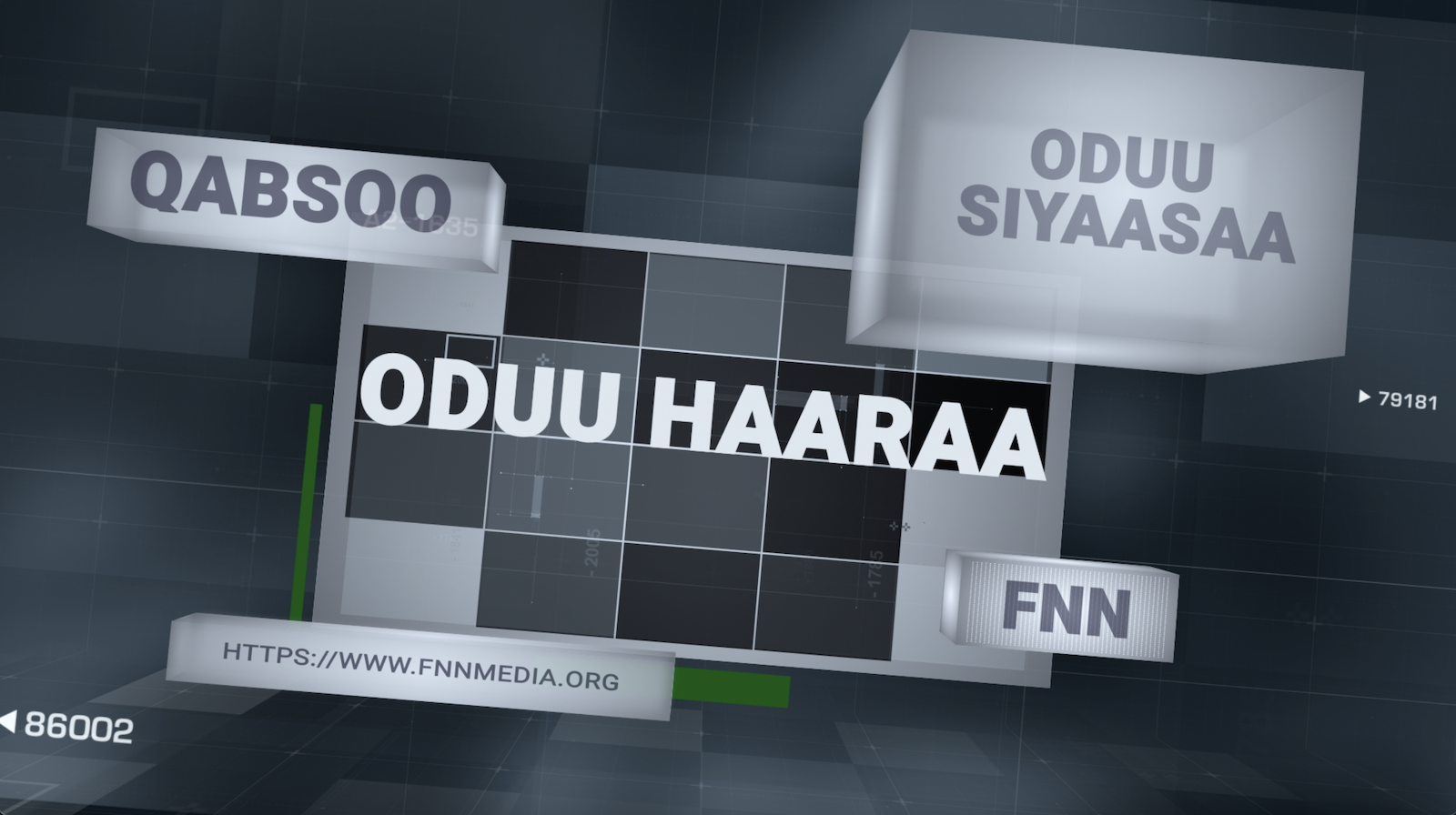OSA SOLIDARITY WITH DEMANDS OF POLITICAL PRISONERS ON HUNGER IN ETHIOPIA, FEBRUARY 18, 2021
Published Feb. 19, 2021, 4:02 a.m. by FNN

The Oromo Studies Association (OSA) offers this urgent message to Oromo political prisoners detained unjustly in Ethiopia. You have resorted to put your lives on the line through a hunger strike to make your voices (and all Oromo voices including ours) heard inside the country and in the public arena. Your voices were now silenced at a critical time. Yet today you are heard.
You are our fellow OSA members, our former President, 2015 Keynote Speaker and 2016 and 2018 conference presenters together with 22 fellow prisoners who are also victims of erasure. We hear you loud and clear. We are all trying to ensure that the world hears you loud and clear. We wholeheartedly support your just demand that the Ethiopian government release you, putting an end to the lethal delaying tactics of “due process” and the creation of bogus charges. Your actions have waked the world to the stakes of using state power to eliminate the participation of millions in the political process.
OSA members share your strong commitment to the movement to bring democracy to Ethiopia. We share your belief that fundamental human rights are the building blocks of democratic governance systems and that no just society can be built on any other foundation. We are committed to do everything in our power to protect these rights in deed as well as in word.
We wholeheartedly join with you in pursuing each of the demands you have identified.
Here is our appeal to you now, as you are in the third and possibly deadly week of this hunger strike – please know that we struggle with you, that we feel the enormous frustration over the injustice, outrage at the disenfranchisement and fury at being erased by a government brought to power through our sacrifices. We understand that you are willing and committed to die to bring resolution of these staggering obstacles. In the face of this we urge you to acknowledge that the enormous changes we all demand together will require longer than your life span on this trajectory.
We ask you to pause the hunger strike and take sustenance while we all continue to work full speed ahead to achieve the objectives of the strike.
Your good health and well-being are public assets to the Oromo people and also for all other marginalized peoples in Ethiopian whose participation in the political process is obstructed. We need to fight this battle together with urgency. We believe that your experience is irreplaceable as is your dedication to the Oromo struggle. All of you provide a moral uplift for the Oromo struggle. We plead with you to suspend this action while we appeal to the Government of Ethiopia with the assistance of the United States, the EU, the UN, the AU, and private groups to ensure that these demands can be met in full
Background:
Demands of Oromo Political Prisoners on Hunger Strike
February 12, Day 16 of Hunger Strike at Kaliti Federal Prison
==================================================================
Jawar Mohammed, Bekele Gerba, Hamza Borana and other Oromo political prisoners are on their 16th day of a hunger strike in Kaliti Federal Prison. They are all in critical condition. Five of the strikers are hospitalized, and all of them have developed kidney problems.
The prisoners asserted that they started this hunger strike because of a worsening political condition and the derailed transition to democracy.
The Oromo political prisoners put their demands as follow:
1. Release All Oromo Political Prisoners.
Jails and prisons are full of Oromos, more than any other group in the country. Currently there are more than 50,000 Oromo political prisoners in Ethiopia. In Kaliti alone there are more than 5,000 Oromo political prisoners, constituting 90% of the nation’s entire prisoners.
There are also more than 30 Oromo political prisoners in Ethiopia who returned from different parts of the world following the 2018 promised transition to democracy. Among the returnees are high ranking officials of the OLF & OFC, including the most influential young political figure from the U.S, Jawar Mohammed.
Therefore, release all prisoners of conscience languishing in Ethiopian jails and prisons, of which the overwhelming majority are Oromo political prisoners.
2. Allow Oromo political party offices to be opened and to operate fully.
More than 103 offices of the Oromo Liberation Front (OLF) across the country, including the HQ in Finfinne, have been closed by the government. More than 90 Oromo Federalist Congress (OFC) offices across Oromia are also now closed by the government.
The ruling party must stop the alienation and systematic disenfranchisement of the Oromo Nation from political participation in the country. Government must allow Oromo media TV station offices that were closed, and their licenses suspended to be reinstated and to resume operations. We also demand that they organize an
all-inclusive national dialogue before the national election.
The government must open up and widen the political space in order to bring the derailed transition back on track, so that all who have a vision for the betterment of Ethiopia could participate in a free and fair election.
Hence, the hunger strikers demand is to open and allow opposition political parties offices to operate. Stop the alienation, systematic disenfranchisement and to open up the political space equally for all.
3. End Mistreatment of Families of Political Prisoners.
Government security forces must end mistreatment of political prisoners while they visit their loved ones at Kaliti Prison and elsewhere. End any inhumane treatment of prisoners under custody or under investigation.
Similar posts:
OGF-Press Release: Urgent Appeal to Oromo Political Prisoners on Hunger Strike and a National call to the Oromo people
Oromo political prisoners on hunger strike: Bekele Gerba critically ill and denied hospital
RESOLUTION OF THE OROMO COMMUNITIES
Harassment continued in Oromia| OLF-OLA Leaders Reveal Causes of Failure in Peace Deal